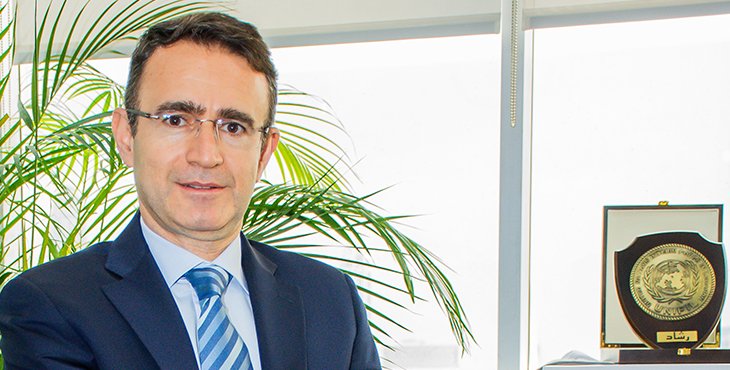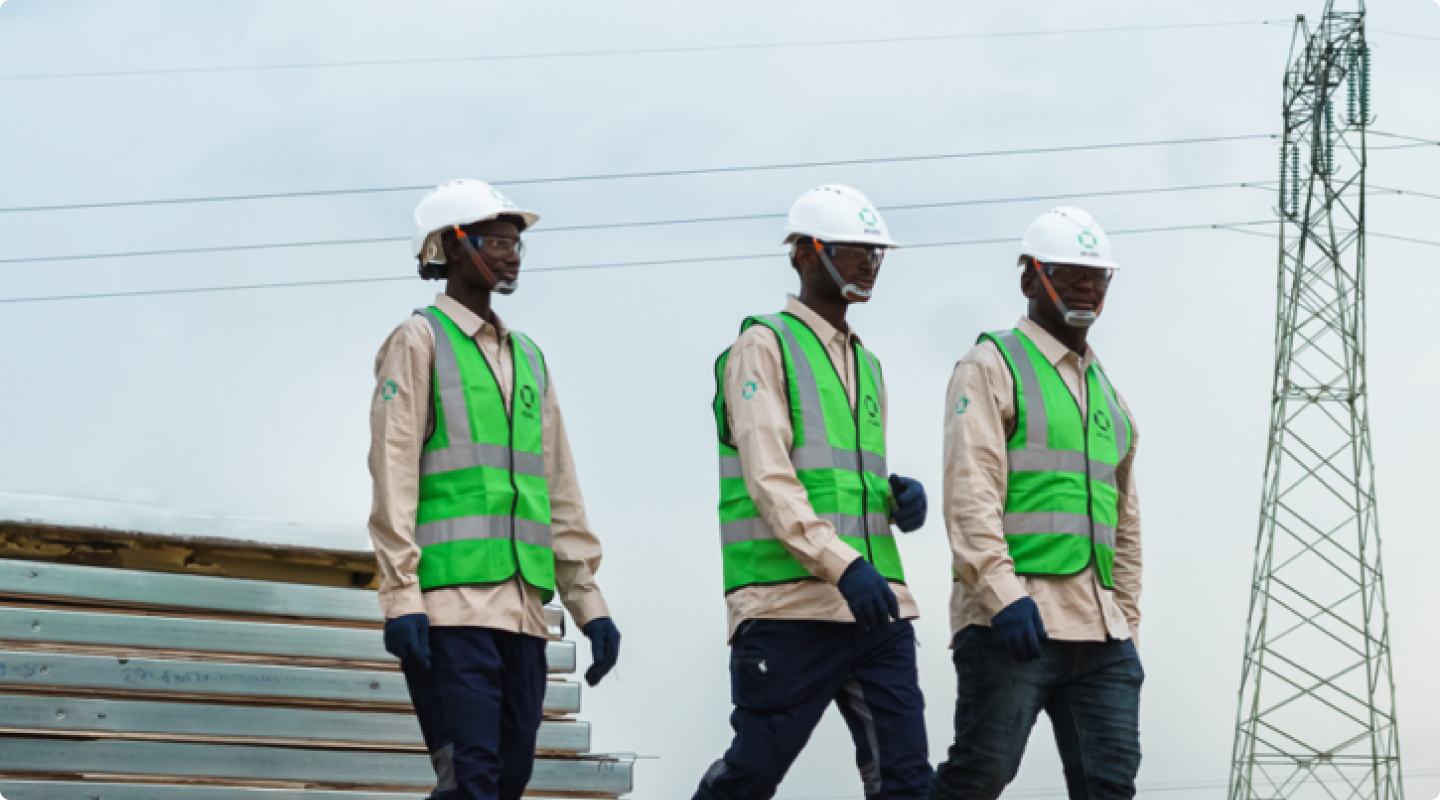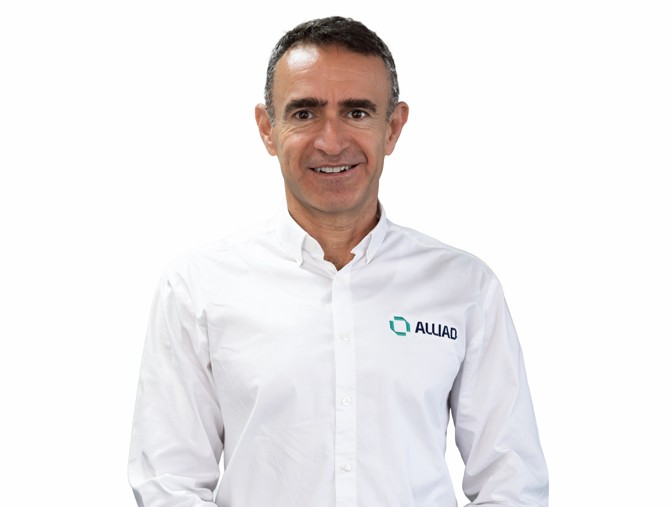Story by Ambrose Ameh
When Rashad Sinokrot speaks about Africa, his tone carries both urgency and optimism. As Chief Executive Officer of Alliad, Chair of the Board of Trustees of the American School of Dubai, and Board Member of the multinational firm, he has overseen the company’s transformation from a regional catering provider into a global player in integrated infrastructure and remote site services.
“Alliad started over 21 years ago under the name GCC Services,” he recalled. “Back then, our core business was catering and life support services for large-scale, remote projects. But as the demands of our clients and the communities we serve evolved, so did we.”
YOU CAN ALSO READ: From Lagos To Nairobi: Moniepoint Acquires Microfinance Bank In Kenya.
The shift was more than cosmetic. Today, Alliad delivers engineering, construction, logistics, facilities management, and development support services in some of the world’s most complex markets. The new name, he says, reflects a broader mission. “The rebrand to Alliad was not just a name change. It represents our deeper mission to be an ally to the communities, governments, and organizations we work with, helping advance sustainable growth and prosperity.”
Although Alliad works across continents, Africa has become its heartbeat. Sinokrot describes the continent as one of the most promising regions globally, rich in human capital, entrepreneurial spirit, and growth opportunities, but often constrained by weak infrastructure. “For us, Africa is not a short-term business opportunity. It’s a long-term strategic commitment,” he said. “We are not just investing in projects, we’re investing in ecosystems and people.”

That philosophy has taken shape in several ways. In Uganda, Alliad ensures that 98 percent of its workforce comes from local communities, while over 85 percent of its supplies are sourced locally. In Kenya, the company partnered with the National Information Technology Authority (NITA) to train and empower young people with disabilities through an Inclusive Skill Development Program. Since its launch in 2022, 26 trainees have benefited, gaining technical and life skills with some securing jobs or starting businesses of their own. “We don’t just want to leave behind buildings. We want to leave behind skills, relationships, and resilient supply chains,” Sinokrot explained.
Across the continent, Alliad’s footprint is expanding rapidly. In Côte d’Ivoire, the company is constructing 90 modern maternity hospitals and 10 new schools in underserved regions. It has also delivered 11 warehouse parks, boosting storage and logistics capacity for both local and international clients. In Uganda, Alliad provides full camp support services to the country’s largest oil development project, sourcing the majority of its food ingredients locally to strengthen agribusiness value chains. In Kenya, its freight-forwarding and logistics arm connects East Africa with global markets through door-to-door solutions. “These aren’t just numbers,” Sinokrot stressed. “They represent families supported, lives saved, and futures made possible.”
For Sinokrot, Africa’s infrastructure gap cannot be solved without collaboration. “No single actor, government, donor, or private sector can solve the infrastructure challenge alone,” he said. “The best Public-Private Partnerships are built on mutual trust, aligned objectives, and a deep understanding of local context. Governments bring the vision and regulatory framework, while companies like ours bring speed, innovation, and delivery capability.” Transparency, accountability, and a shared commitment to long-term outcomes, he believes, are the anchors that make PPPs successful.
YOU CAN ALSO READ: Dangote Refinery Taps Former Shell Executive, David Bird as CEO Amid Expansion Plans
Two decades of operating across diverse African markets have taught him critical lessons. First, that Africa is not a monolith. “What works in Uganda may not work in Côte d’Ivoire or Kenya,” he said. “That’s why local partnerships are critical. We don’t come in with a one-size-fits-all solution. We listen, and we co-create solutions that work.” Second, resilience is non-negotiable. Projects may face weather disruptions, policy changes, or political shifts, yet delivery cannot falter. “You need teams that can adapt and keep delivering no matter the challenge. That’s the Alliad way.”

As a leader, Sinokrot is guided by what he calls “purpose and people.” He frames every decision around three questions: Does it move our mission forward? Does it create value for stakeholders? And does it leave a positive footprint? “I believe great leaders serve not just their shareholders, but their employees, partners, and the communities they impact,” he said.
For businesses and investors eyeing Africa, Sinokrot offers pragmatic advice. “Come with bold ideas, but also come ready to listen, learn, and partner. Invest for the long term. Engage local communities. And most importantly, align your business model with impact. The companies that will succeed in Africa are those who contribute to solving the continent’s biggest challenges, from energy access to healthcare, education, and logistics.”
In a continent often portrayed through its gaps, Alliad sees possibilities. And under Sinokrot’s leadership, the company is betting on Africa’s future not just by building infrastructure, but by building capacity, partnerships, and resilience.










